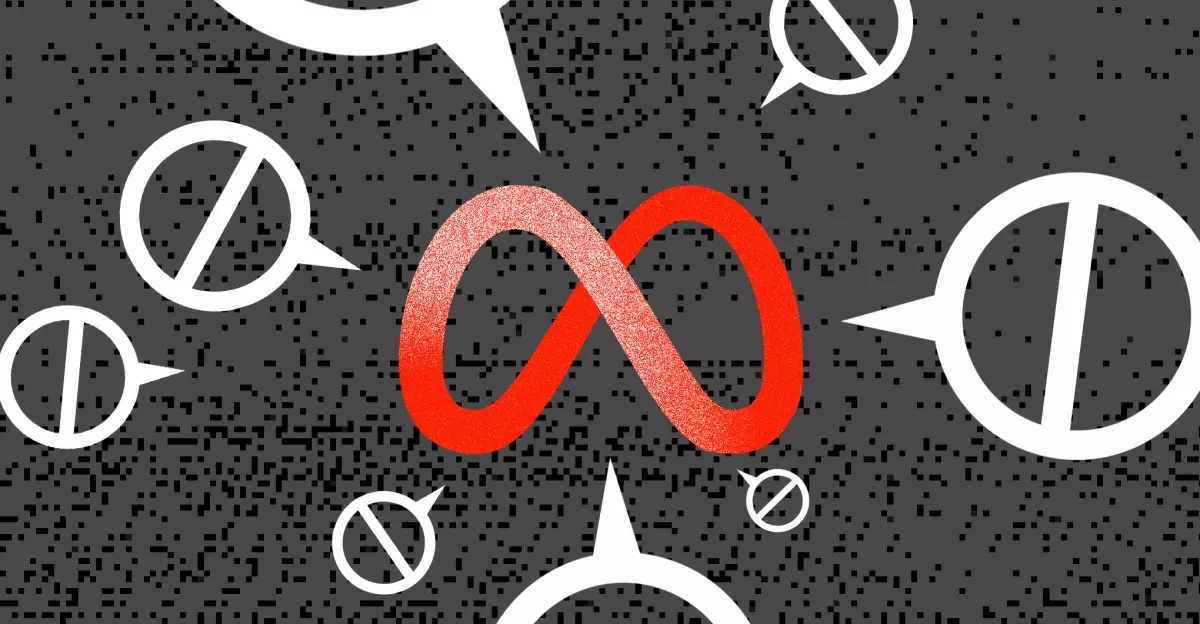In recent weeks, the climate within Meta, the social media behemoth formerly known as Facebook, has become decidedly fraught. As the company navigates a series of controversies, it faces an internal culture clash that is threatening to erode the unity amongst its workforce. The tensions are not merely anecdotal; they reflect broader systemic issues within the organization. Meta’s Chief Technology Officer, Andrew Bosworth, recently expressed his concerns during a company-wide Q&A session where he lamented “a tremendous number of leaks” emerging from the company. This acknowledgment points to an unsettling trend within Meta, where internal communications are increasingly finding their way into the public domain.
Bosworth’s remarks suggested that management views these leaks not only as a disruption but as an incentive for further internal discord. He articulated a fundamental misunderstanding of how leaks can serve as a catalyst for change rather than a deterrent, revealing a defensive stance from leadership. This rhetoric underlines a significant power struggle; while employees seek transparency and accountability, management appears to be more concerned with maintaining control and suppressing dissent.
The disconnection between various tiers of the organization is exemplified by Bosworth’s confrontational reaction to employee inquiries about CEO Mark Zuckerberg’s comments concerning workplace dynamics. In an age where workplace diversity and inclusion are pivotal, Zuckerberg’s articulation of a desire for “more masculine energy” in the company raised eyebrows and led many employees to express concern. Bosworth’s vehement defense of Zuckerberg underscores a troubling disconnect: it appears that leadership is oblivious to the anxieties of its employees. His assertion that employees should take the time to fully digest content before framing critiques is misaligned with the escalating emotional climate within the company.
It is this lack of empathy that can lead to serious repercussions. Employees who feel unheard or invalidated may either disengage or be compelled to seek employment elsewhere, further perpetuating a cycle of dissatisfaction and volatility. The differentiated interpretations of corporate culture between upper management and employees can create a chasm that inhibits collaboration and innovation, two elements essential for a technology-focused organization.
As if the cultural strife within Meta wasn’t enough, there are external factors exacerbating the tense atmosphere. The impending layoffs, couched in terms of performance assessments, have left many staff members feeling anxious and uncertain about their futures. The specter of “low-performer” categorization looms large, creating an environment rife with apprehension about job security. This climate of fear often stifles creativity and job performance, counterproductive in an industry that thrives on innovation and ingenuity.
Further complicating matters is the parallel narrative unfolding at other major tech companies. Layoffs at Google, Sonos, and the US Digital Service demonstrate that Meta is not alone in grappling with workforce restructuring. The unsettling reality is that personnel cuts are not only prevalent but appear to be a consensus tactic across the tech sector to streamline operations and enhance profitability. As these shifts occur, employees are left to question their places within these large organizational machines, often leading to decreased morale and increased turnover intentions.
The future for Meta could define its trajectory for years to come. As the company finds itself at a crossroads, the decisions made in the near term will shape both its operational model and its cultural ethos. If management continues down a path of defensiveness, stifling dissenting voices, and failing to address the genuine concerns of its workforce, the company risks further alienation of its talent pool.
For Meta to prosper, it must engage in meaningful dialogue with its employees, acknowledging their contributions and concerns. Transparency and authenticity must become the foundation of its corporate culture, fostering an environment where innovation can thrive. In an industry marked by rapid change, flexibility and adaptability will be crucial for survival. It remains to be seen whether Meta will embrace this turning point or continue to navigate a path of internal strife and uncertainty. The resolution to these systemic issues may well dictate its success in the ever-evolving landscape of tech.

